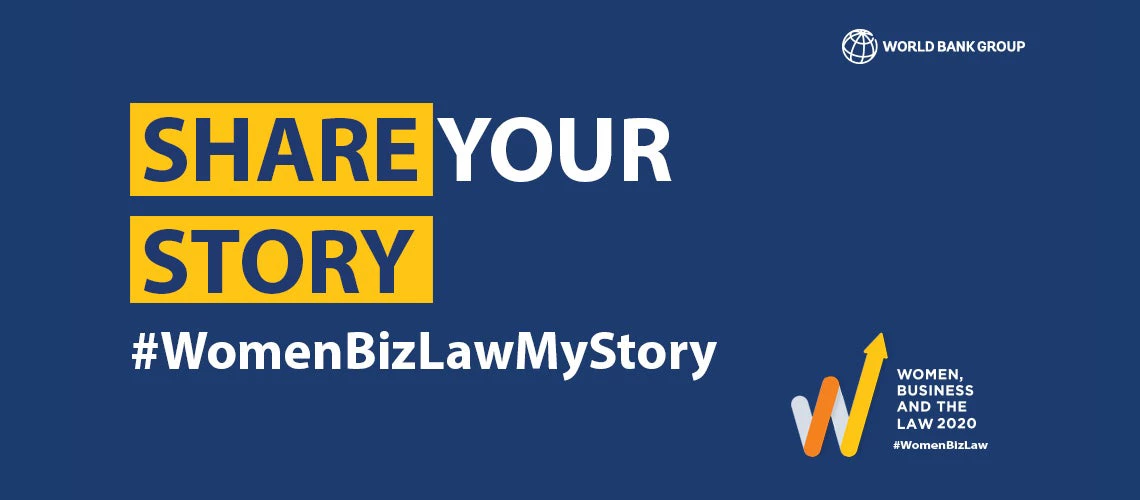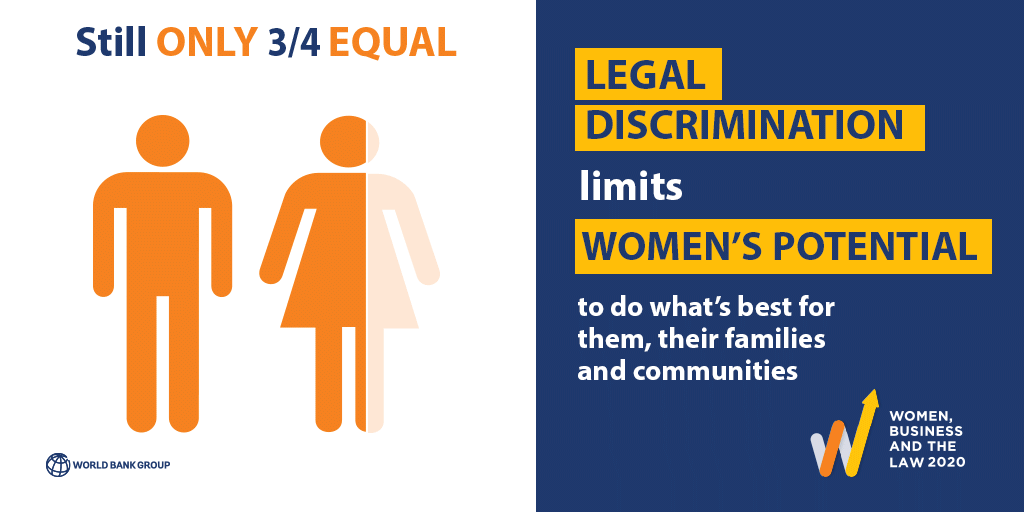 Share your story with us using #WomenBizLawMyStory
Share your story with us using #WomenBizLawMyStory
Last week, we published the Women, Business and the Law 2020 report, which tracks how laws affect women at different stages of their working lives in 190 economies around the world.
It examines eight areas that impact a woman’s ability to work: Mobility, Workplace, Pay, Marriage, Parenthood, Entrepreneurship, Assets, and Pension. In the report, we ask whether the law treats a woman in the same way as a man in these areas.
Now we turn to you. We want to hear about your experience.
The good news is that legal gender equality is improving. The 2020 report says that 40 economies made 62 legal reforms over the past two years and all regions advanced, especially where reforms were needed most. Eight countries received a perfect score of 100 in the areas measured, compared to 10 years ago when there were none.
However, in many countries, women still have only a fraction of the legal rights of men, facing legal restrictions that limit their opportunities to work or own a business throughout their life.
Does this sound familiar to you?
Can women get a job in the same way as men? Does the law mandate equal remuneration for work of equal value? Is dismissal of pregnant workers prohibited? Does the law prohibit discrimination in access to credit based on gender? Are the mandatory retirement ages for men and women equal?
When the answer is ‘no,’ it holds women back from fully participating in their economies, and affects their ability to make economic decisions that are best for them, their families and their communities.
This year we mark the 25th anniversary of the World Conference on Women in Beijing, a significant turning point for gender equality. As we enter the 2020’s, it’s a good opportunity to look back and see how far we’ve come, and think ahead to what more needs to be done to level the playing field for women.
Today, women are on average only three quarters equal to men legally, according to our 2020 report. Fifty years ago, women were barely half equal. Will it take 50 more years to achieve legal gender equality?
So tell us: can women in your country work in the same way as men? What opportunities and challenges do you face as you move through your career? Do you have more economic opportunities than your mother or grandmother? What else needs to change to level the playing field for our daughters?
We would love to hear from you!
Post your comments below.
Or if you’re following us on Instagram or Twitter:
- Send us a photo of you with your daughter, mother or grandmother.
- Tell us: What work opportunities do you have compared to your mother or grandmother? What else needs to change to improve opportunities for your daughter? Tell us at #WomenBizLawMyStory
Or if you’re following us on Facebook or LinkedIn:
- Comment on: What work opportunities do you have compared to your mother or grandmother? What else needs to change to improve opportunities for your daughter?




Join the Conversation